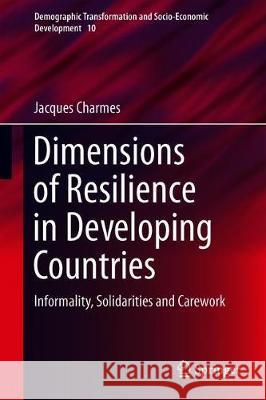Dimensions of Resilience in Developing Countries: Informality, Solidarities and Carework » książka
topmenu
Dimensions of Resilience in Developing Countries: Informality, Solidarities and Carework
ISBN-13: 9783030040758 / Angielski / Twarda / 2019 / 224 str.
Kategorie:
Kategorie BISAC:
Wydawca:
Springer
Seria wydawnicza:
Język:
Angielski
ISBN-13:
9783030040758
Rok wydania:
2019
Wydanie:
2019
Ilość stron:
224
Waga:
0.63 kg
Wymiary:
23.5 x 15.5
Oprawa:
Twarda
Wolumenów:
01
Dodatkowe informacje:
Bibliografia











